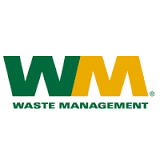News
EPA takes first-ever federal Clean Water Act enforcement action to address PFAS discharges at Washington Works facility near Parkersburg, W. Va.
Apr 26, 2023
WASHINGTON – The U.S. Environmental Protection Agency has ordered the Chemours Company to take corrective measures to address pollution from per-and polyfluoroalkyl substances (PFAS) in stormwater and effluent discharges from the Washington Works facility near Parkersburg. The order on consent also directs Chemours to characterize the extent of PFAS contamination from discharges.
This is the first EPA Clean Water Act enforcement action ever taken to hold polluters accountable for discharging PFAS into the environment. PFAS are a group of man-made chemicals that have been manufactured and used in industry and consumer products since the 1940s. There are thousands of different PFAS chemicals, some of which have been more widely used and studied than others.
According to the EPA order, PFAS levels in the discharges from the facility exceed levels that are set in the facility’s Clean Water Act permit.
“Administrator Regan has directed EPA staff to use every enforcement tool at our disposal to compel manufacturers of PFAS to characterize, control, and clean up ongoing and past PFAS contamination,” said Acting Assistant Administrator Larry Starfield of EPA’s Office of Enforcement and Compliance Assurance. “Through this order, EPA is taking action to address PFAS violations and better protect the resources and people of West Virginia.”
“The Parkersburg community has a long history with this facility and the ever-present threat of PFAS pollution,” said EPA Mid-Atlantic Regional Administrator Adam Ortiz. “This order demonstrates that EPA will take action to safeguard public health and the environment from these dangerous contaminants.”
Under the Clean Water Act, it is unlawful to discharge pollutants into U.S. waterways except pursuant to a National Pollution Discharge Elimination System (NPDES) permit, issued by EPA or a state. The permit sets pollution discharge limits, monitoring and reporting requirements, and other conditions designed to protect water quality. More information on the NPDES program.
Chemours operates several manufacturing units at the Washington Works facility, which produce fluorinated organic chemical products including fluoropolymers. The facility discharges industrial process water and stormwater to the Ohio River and its tributaries, under the terms of a NPDES permit issued in 2018 by the West Virginia Department of Environmental Protection. E.I. du Pont de Nemours and Company was the NPDES permit holder at Washington Works until 2015. In 2015, the permit was transferred to Chemours.
The permit imposes discharge limits and requires monitoring of certain pollutants, including PFAS such as perfluorooctanoic acid (PFOA), which was used in the past as a processing aid for manufacturing, and HFPO Dimer Acid, also known as GenX -- which replaced PFOA as a processing aid.
In an administrative compliance order on consent (AOC) issued today, EPA sets forth that this facility exceeded permit effluent limits for PFOA and HFPO Dimer Acid on various dates from September 2018 through March 2023, and that Chemours failed to properly operate and maintain all facilities and systems required for permit compliance.
As an initial step in characterizing PFAS in surface water discharges, EPA’s order requires Chemours to implement an EPA-approved sampling plan to analyze PFAS and conduct analysis to further understand the presence of PFAS in stormwater and effluent discharged from the facility. Also, Chemours will submit and implement a plan to treat or minimize the discharge of PFAS to ensure compliance with numeric effluent limits of PFOA and HFPO Dimer Acid.
In addition, to identify best practices to reduce PFAS discharges from the site, Chemours will submit its existing Standard Operating Procedures relating to the management of wastewater for various systems and its revised Storm Water Pollution Prevention Plan.
Background
Since 2004, EPA has been working to understand and address PFOA and other fluorocarbon chemicals released from this and other sites. In 2021, EPA launched the PFAS Strategic Roadmap, a whole-of-agency approach for addressing PFAS. The Roadmap sets timelines by which EPA plans to take specific actions and commit to new policies to safeguard public health, protect the environment, and hold polluters accountable. In the national PFAS Roadmap, EPA commits to investigate releases of PFAS and, where needed, require manufacturers to characterize and control their PFAS releases. In the Roadmap, EPA also commits to take swift action to address potential endangerments to public health. EPA is actively working with its state partners on this effort, which will build upon valuable work led by a number of states.
This was an excellent course









































































































